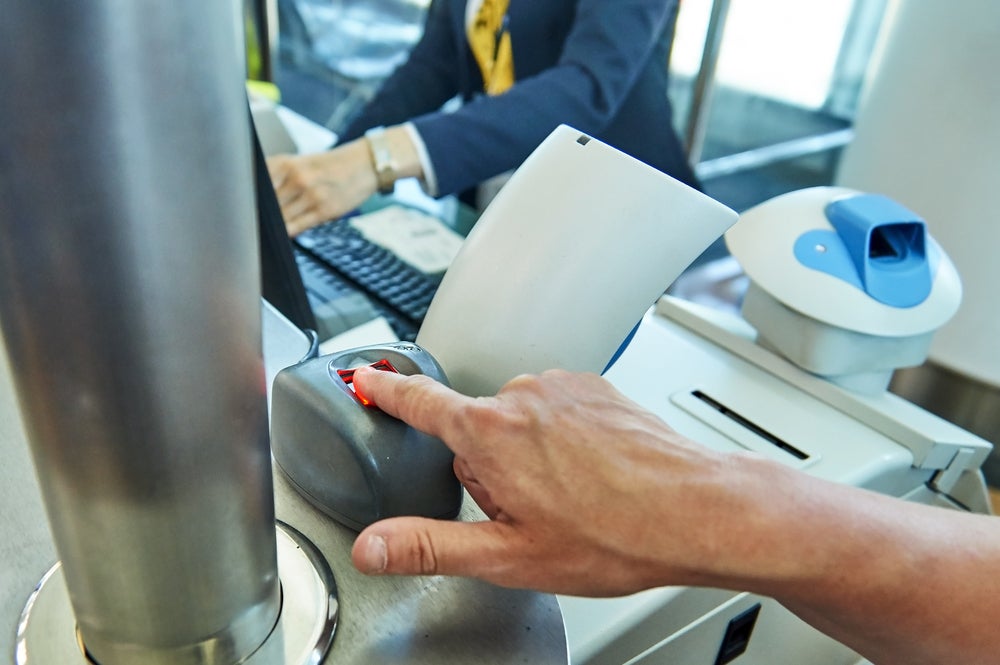The days of fumbling for passports at airport security may soon be over. With biometric technology already in place at 238 US airports and embraced by four out of every five Americans, the future of air travel is shifting toward a seamless, passport-free experience.
From speeding up security lines to enhancing fraud prevention, biometrics offer a blend of convenience, efficiency, and heightened security that travellers are embracing rapidly.

Yet, alongside the excitement comes natural curiosity and concern about how this technology will handle sensitive data. As biometric travel gains momentum, questions around privacy and security remain top of mind.
How will our personal data be managed? Who will have access to it? These are valid considerations as we move toward a more digitised travel experience.
Unsolved issues for a biometric airport: from fraud to frustration
Despite the numerous advancements in air travel, certain challenges continue to persist. One of the primary issues is fraud and identity theft. Airports have long faced the threat of fraudulent activities, ranging from the use of counterfeit passports to stolen identities.
These incidents not only pose significant security risks but also cause delays in passenger processing, disrupting the flow of travel and creating additional complications for both airport authorities and travellers.

US Tariffs are shifting - will you react or anticipate?
Don’t let policy changes catch you off guard. Stay proactive with real-time data and expert analysis.
By GlobalDataAnother challenge is the time-consuming nature of checkpoints. The traditional process of manually verifying passenger identities at various stages – from check-in to boarding – can result in long wait times and bottlenecks. This can lead to frustration for passengers who are eager to streamline their travel experience, while also contributing to operational inefficiencies for airports.
Lastly, there is an increasing demand for contactless solutions. As air travel becomes more digital, passengers are looking for ways to minimise physical interactions, particularly in the wake of public health concerns. This has amplified the need for solutions that can offer a safe, efficient, and touch-free experience without sacrificing security.
How biometrics are transforming air travel
As airports look to modernise their operations and address the challenges of traditional air travel, biometric technology has emerged as a powerful tool to enhance both security and the overall traveller experience.
Biometrics, which rely on unique physical traits like facial features, fingerprints, and iris patterns, offer a high-tech alternative. This approach not only improves security but also creates a more seamless, efficient process for passengers. By eliminating the need for physical documents and reducing the chances of human error, biometric technology is transforming how people move through airports.
The growing use of biometrics at US airports is revolutionising travel in three key ways. Firstly, through enhancing security and fraud prevention. By using unique biological traits, biometric systems create a highly secure way to verify passenger identity. This helps reduce fraud and identity theft, giving both airports and travellers greater peace of mind.
Biometrics also allow for greater efficiency and convenience. They facilitate faster, more accurate identity verification, reducing the need for manual document checks. This results in shorter wait times at security checkpoints and smoother boarding processes, making the travel experience more efficient and enjoyable.
Lastly, they offer a contactless travel experience. As the world shifts toward more digital and contactless interactions, biometrics provide a modern, hygienic way to verify passengers. With no need to handle physical documents, travellers can move through the airport more quickly and with fewer touchpoints.
Ensuring privacy in a biometric world
While the benefits of biometrics are clear, it’s important to acknowledge that some travellers may have questions about how their data is handled. Transparency and robust security measures will be key to addressing these concerns.
When it comes to responsible data use, airports and travel authorities are committed to ensuring that biometric data is securely stored and used responsibly. Clear communication about how this data is protected and who has access to it will help build trust among travellers.
What about Mitigating the Risk of Data Breaches? While no system is completely immune to cyber threats, biometric systems are designed with advanced encryption and security protocols to safeguard against breaches. As the technology continues to evolve, so too will the methods for protecting sensitive data.
Balancing convenience and privacy is vital. For many travellers, the convenience and security benefits of biometrics far outweigh potential privacy concerns. However, by remaining transparent and upholding high standards for data protection, airports can ensure that the adoption of biometrics enhances – not compromises – the travel experience.
A bright future for the biometric airport
As biometric technology continues to gain momentum, the vision of a passport-free airport experience is no longer a distant dream – it’s fast becoming a reality.
By tackling long-standing issues like fraud, inefficiency, and the need for contactless solutions, biometric technology offers a glimpse into a future where air travel is faster, safer, and more convenient for everyone.
However, the key to fully unlocking the potential of biometric travel lies in building and maintaining trust. Travellers need to feel confident that their personal data is handled with the highest standards of security and transparency.
If the industry can strike the right balance between innovation and privacy, biometric systems have the power to reshape not only how we travel, but how we think about identity in a digital world.
With the right safeguards in place, the future of air travel looks brighter and more secure than ever.





